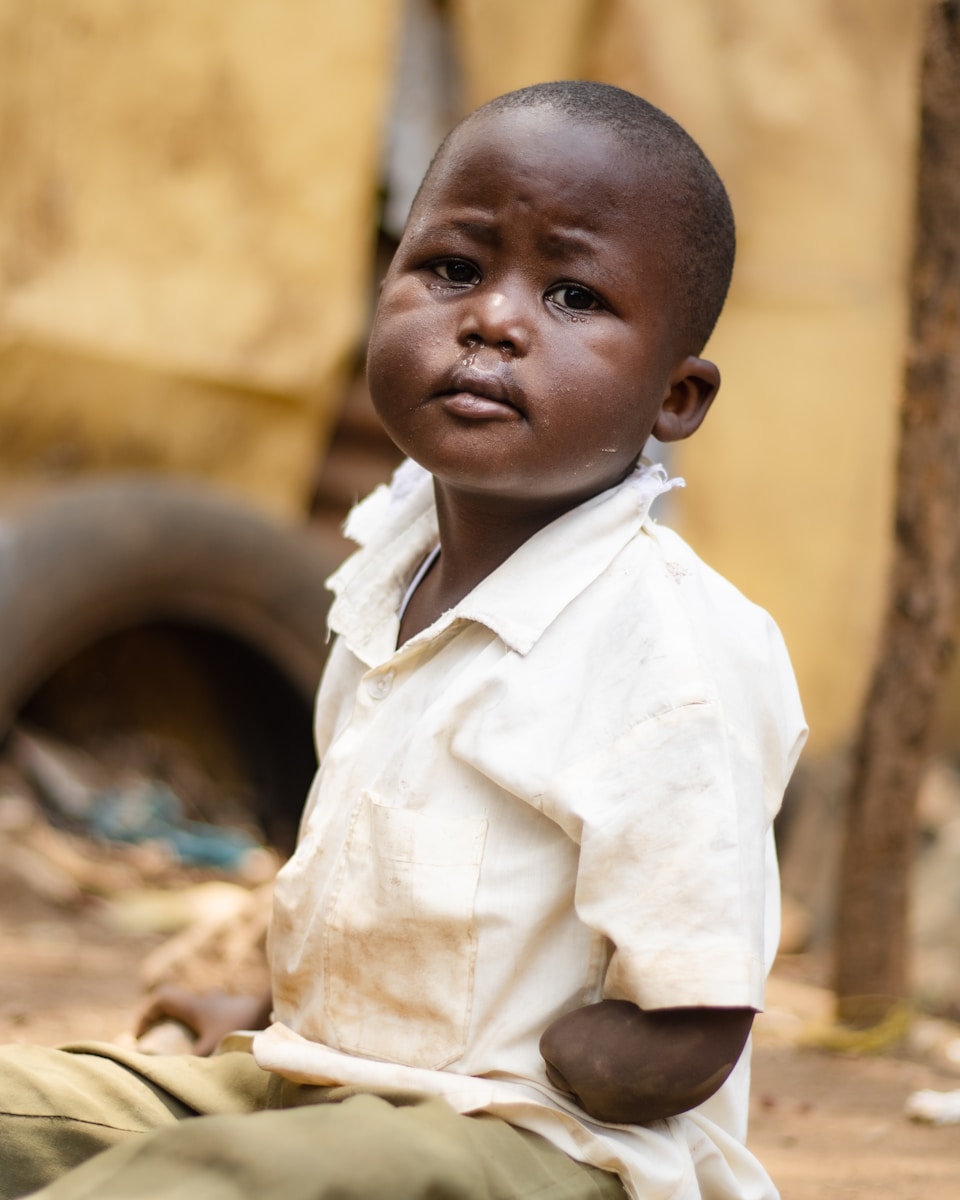Child Malnutrition: A Stark Indicator of Looming Conflict in Nigeria
In Nigeria, where poverty, conflict, and climate change intertwine, a disturbing trend is emerging—child malnutrition is increasingly seen not just as a health crisis, but as a precursor to societal unrest and violence. This alarming phenomenon has drawn the attention of researchers and policymakers alike, who warn that the deterioration of food security and child health may serve as a red flag for future conflicts.
A recent study conducted in Nigeria connects the growing rates of malnutrition among children with climate change-induced food shortages, signaling the potential for widespread social unrest. These findings offer a stark reminder of how environmental changes can exacerbate existing vulnerabilities and contribute to the breakdown of social order.
The Nexus Between Climate Change and Food Security
Climate change has long been recognized as a global threat with far-reaching consequences. However, its direct impact on food security—particularly in developing countries like Nigeria—has become increasingly apparent. A combination of unpredictable weather patterns, prolonged droughts, and erratic rainfall is disrupting agriculture, which forms the backbone of many rural economies in the country. The effects are severe, with crops failing, food prices soaring, and millions of people facing hunger.
For Nigerian children, the consequences are even more dire. Malnutrition is not only a public health issue but a threat to long-term social stability. Malnourished children suffer from stunted growth, cognitive delays, and weakened immune systems, which undermine their ability to contribute productively to society in the future. These health setbacks create a generation of individuals who may struggle to thrive in an already strained economic system.
Child Malnutrition as a Predictor of Violence
The study in Nigeria highlights an unsettling link between child malnutrition and increasing violence. As food becomes scarcer and prices rise, tensions between communities, tribes, and regions intensify. The pressure on already limited resources often leads to violent confrontations, particularly in regions where ethnic and religious divisions are prevalent.
The most vulnerable populations, including children, suffer disproportionately in such environments. In some cases, malnutrition-related crises have already triggered violent outbreaks, particularly in northern and central Nigeria, where food insecurity is most severe. These outbreaks are not only a result of hunger but are fueled by a combination of frustration, desperation, and a lack of resources to address basic needs.
When children experience malnutrition, the social fabric of communities begins to unravel. As families are forced to compete for dwindling food supplies, their survival instincts often clash with social order, paving the way for violence. Furthermore, as malnutrition contributes to higher mortality rates and poorer health outcomes, entire communities may become destabilized, further intensifying the risk of conflict.
The Role of Economic Inequality
One of the critical factors exacerbating food insecurity in Nigeria is economic inequality. While some regions in the country are relatively more prosperous, others are grappling with extreme poverty and lack of infrastructure. This disparity has worsened in recent years due to climate-related disruptions, leaving many communities without the resources to protect themselves from environmental and economic shocks.
The economic divide is particularly pronounced in rural areas, where agriculture is the primary means of livelihood. When crops fail due to droughts or floods, the income of entire families is wiped out. Without access to alternative sources of food or income, the situation quickly spirals into a humanitarian crisis. For children, this means the difference between life and death, as malnutrition sets in and weakens their chances for survival.
In many cases, economic inequality is not just about wealth distribution, it’s about access to basic needs like food, clean water, healthcare, and education. As these needs go unmet, communities become increasingly vulnerable to both climate impacts and violence.
The Impact on Conflict Dynamics
The relationship between food insecurity, child malnutrition, and conflict is not only limited to Nigeria. Across sub-Saharan Africa and other parts of the world, similar patterns are emerging. Climate change, with its disastrous effects on agriculture and food production, is a key factor in escalating social tensions. When people are hungry and unable to meet their basic needs, they become more susceptible to extremist ideologies and may resort to violence in a desperate attempt to survive.
This dynamic is especially evident in conflict zones where climate-induced disruptions are worsening existing grievances. In many cases, food insecurity becomes a key driver of conflict, with armed groups taking advantage of vulnerable populations to further their own agendas. By controlling food resources, these groups increase their power and influence, further destabilizing regions already on the brink of collapse.
Moreover, the link between child malnutrition and violence often creates a vicious cycle. Malnourished children grow up in environments characterized by instability and fear, making it harder for them to break free from poverty and violence. As these children become adults, they may perpetuate the same patterns of conflict, creating a generational trap that is difficult to escape.
The Urgency of Addressing Climate Change and Food Insecurity
The findings from Nigeria highlight the urgent need for a comprehensive approach to addressing both climate change and food insecurity. Governments, international organizations, and communities must prioritize investments in sustainable agriculture, disaster preparedness, and social safety nets to protect vulnerable populations from the effects of climate change.
In Nigeria, efforts are underway to improve food security by promoting climate-resilient agricultural practices and improving access to nutritious food. However, much more needs to be done to ensure that children, particularly those living in rural and conflict-prone areas, have access to the resources they need to survive and thrive.
Moreover, addressing malnutrition requires a multifaceted approach that includes improving healthcare, education, and economic opportunities. By investing in the well-being of children today, we can prevent future conflicts and create a more stable and peaceful world for future generations.
Conclusion
As the connection between climate change, food insecurity, and violence becomes increasingly apparent, it is clear that the world must take immediate action to address these interconnected challenges. In Nigeria and beyond, the malnutrition of children is not just a public health crisis, it is a signal of deeper societal fractures that, if left unaddressed, could lead to violent conflicts.
By focusing on climate resilience, equitable food distribution, and social stability, we can break the cycle of malnutrition and violence. The future of millions of children, and the stability of entire nations, depends on the steps we take today to ensure a sustainable and peaceful tomorrow.
For more news: africaciviclens.com




